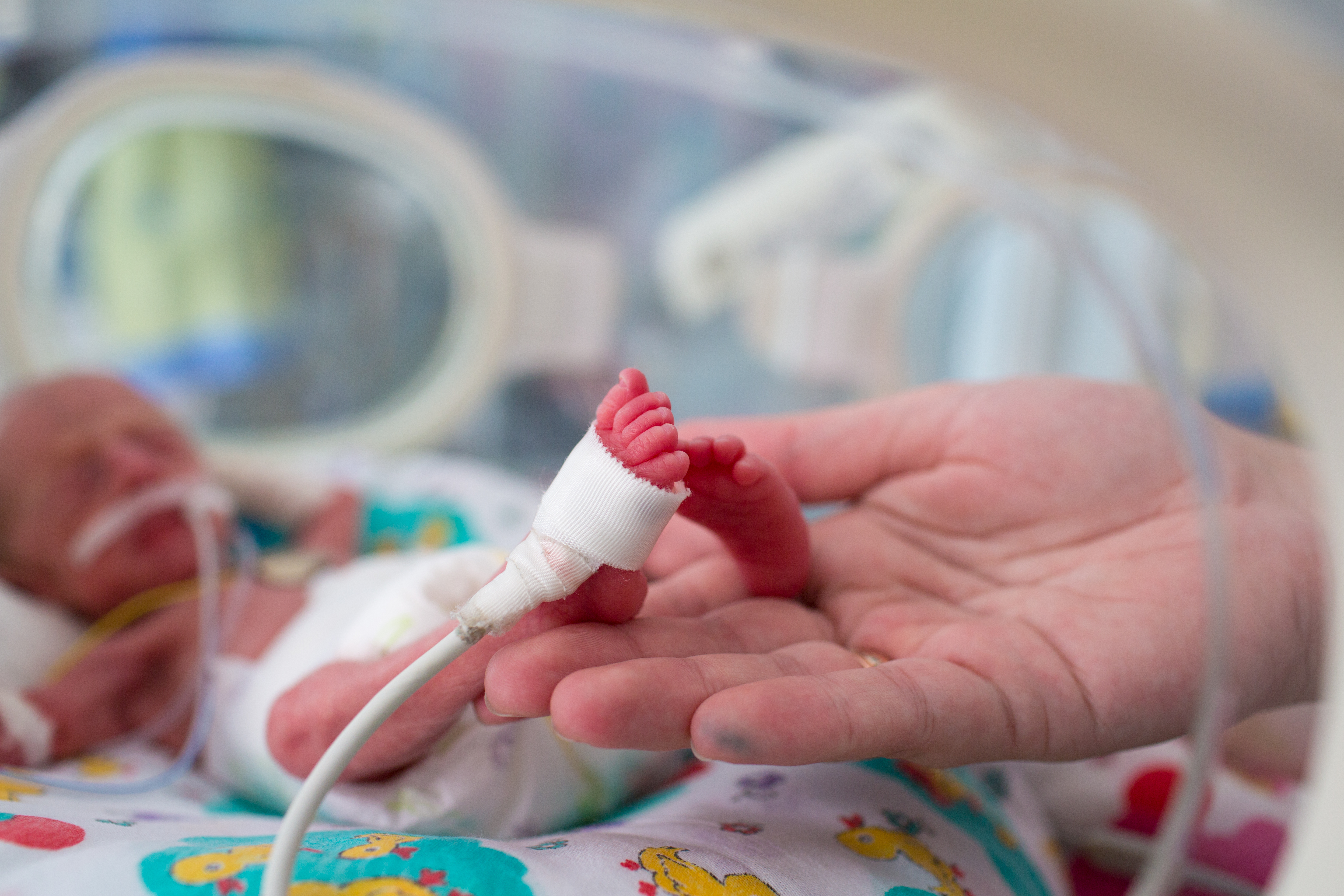Outrage of the Month: After Learning of Faulty Equipment That Could Endanger Babies, Clinical Trial Leaders Continued Experiment
Health Letter, July 2017
By Michael Carome, M.D.

If you’re not outraged,
you’re not paying attention!
Read what Public Citizen has to say about the biggest blunders and outrageous offenses in the world of public health, published monthly in Health Letter.

Lead researchers for a federally funded trial involving premature infants were alerted to serious problems with oxygen monitors used in the trial while it was ongoing — problems that could have endangered the infants — but decided to continue enrolling infants without correcting the problems and without notifying proper authorities or the infants’ parents, newly uncovered documents appear to show.
The federally funded SUPPORT trial, which began in 2005, was a complex experiment involving 1,316 premature infants at nearly two dozen research institutions throughout the U.S. The infants were randomly assigned to receive different amounts of oxygen, in either a low or high target range. Researchers then measured several outcomes in the babies, including the rates of blindness, brain injury and death. The last baby was enrolled in 2009, but researchers continued to collect long-term follow-up data on a large group of the subjects until age 6-7 years.
In light of the new information about the trial, Public Citizen and two renowned bioethicists, Ruth Macklin, Ph.D., and Lois Shepherd, J.D., sent a letter on June 14 to the Office for Human Research Protections (OHRP) — an agency within the U.S. Department of Health and Human Services (HHS) — calling on the office to investigate the findings, sanction the responsible parties and inform the parents of babies enrolled in the trial.
For the trial, researchers used commercially available oxygen monitors that were manufactured by Masimo — one of several companies that make such devices — to monitor the babies’ oxygen levels. For the purposes of the trial, the monitors were modified to display oxygen levels spanning the low and high target ranges that were either higher or lower than the actual values. This experimental masking was done so that caregivers of the babies did not know to which group the babies were assigned.
When Public Citizen in April 2013 learned of the trial, we called on the government to notify parents about serious ethical lapses that had occurred during the trial. We said the trial had been highly unethical because parents had not been adequately notified of the risks, including that the infants had been exposed to an increased risk of blindness, brain injury and death. In a subsequent May 2013 report to the U.S. Secretary of Health and Human Services, Public Citizen also highlighted the unethical use of oxygen monitors that purposely displayed inaccurate readings to prevent the babies’ medical teams from knowing to which trial group the babies were assigned. The HHS acknowledged Public Citizen’s complaints but so far has refused to take further action.
In 2013, under the Freedom of Information Act, Public Citizen sought all National Institutes of Health (NIH) records related to the review and oversight of the experiment. After much foot-dragging by the NIH and incomplete releases of documents, Public Citizen sued the HHS, prompting the release of tens of thousands of pages over the past year.
Recently released emails reveal that in June 2008, while babies were still being enrolled in the SUPPORT trial, the lead researchers were informed about serious problems with the oxygen monitors being used in the trial. These problems involved a defect in the devices’ underlying calibration software that was uncovered by researchers in the U.K. who were conducting a trial that was nearly identical to the SUPPORT trial’s oxygen experiment. Of particular concern was the observation by the U.K. researchers that the defective monitors appeared to be causing some of the babies to be exposed unexpectedly to more time at oxygen levels below the range considered to be safe.
The emails show that Dr. Neil Finer, national principal researcher for the SUPPORT trial, notified several other SUPPORT trial researchers and the lead NIH staff member overseeing the trial about these problems. Finer said in one email discussing the problems with the oxygen monitors that “This is very worrisome.” Finer also said in another email, “We are now well over 1,100 infants on our way to 1,310 so we will no doubt continue as we are.”
The ethically appropriate course of action for the SUPPORT trial researchers to take upon learning about the problems with the oxygen monitors would have been to immediately suspend subject enrollment in the trial, promptly report the problems to the responsible institutional review boards (IRBs) and wait for the outcome of the IRBs’ review.
Disturbingly, the SUPPORT trial researchers, apparently reluctant to delay the progress of their research, continued to enroll more than 200 additional babies in the trial and kept using the defective oxygen monitors even after learning about the devices’ serious, potentially life-threatening problems.
In addition, Public Citizen’s review of internal documents that we obtained from the NIH and OHRP provided no evidence that the entities that should have been told and that had the authority to halt the trial (IRBs and the OHRP) were ever informed of the faulty oxygen monitors, as is required by federal regulations governing human clinical trials.
The apparent course of action taken by the researchers, if confirmed, represented a reckless disregard for the safety of the babies enrolled in the trial and major breaches of fundamental ethical principles and regulatory requirements governing research involving human subjects.